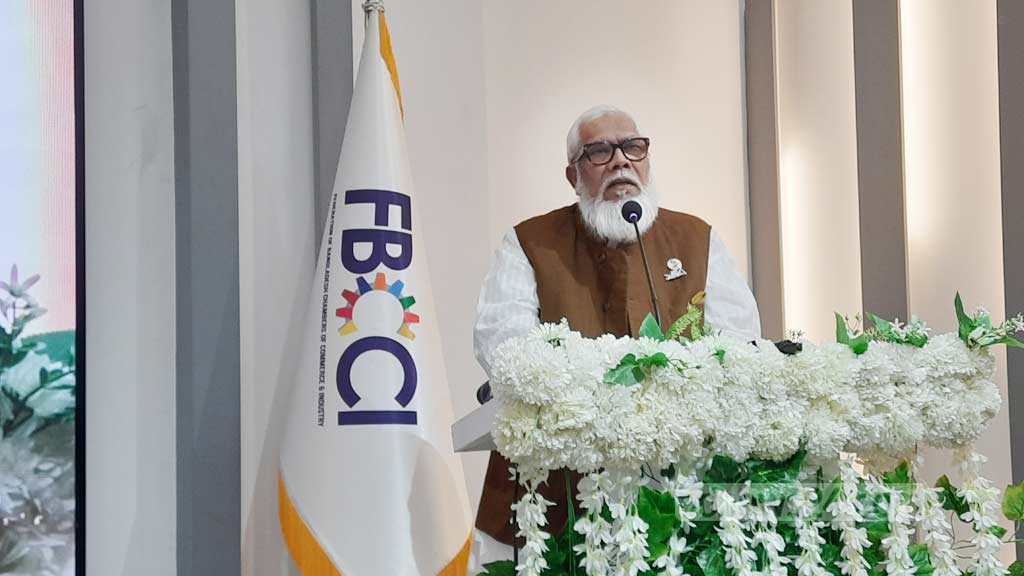Home
+
Bangladesh Bank introduced the one-time ‘exit facility' for the first time in 2019 to contain the volume of non-performing loans

Published : 29 Oct 2022, 11:57 PM
Salman F Rahman, the prime minister’s private industry and investment adviser, has indicated that the government is working to include ‘exit facilities’ in a proposed amendment to the banking law.
More steps need to be taken to help the defaulters, mostly businessmen and industrialists, get out of the cycle of debt, Salman said.
“If the defaulters are punished under the law, their companies can still be rebuilt to make sure production remains uninterrupted,” he said.
Salman, also vice-chairman of Beximco Group, spoke at a seminar on public-private partnership organised by the Federation of Bangladesh Chambers of Commerce and Industry on Saturday.
Salman’s comments came at a time when the International Monetary Fund opened formal discussions with Bangladesh on economic and financial reforms and policies, with an eye on a future lending programme and access to a new longer-term facility. Bangladesh expects $4.5 billion in loans under three IMF programmes.

Bangladesh Bank introduced the one-time exit facility for the first time in 2019, as an ad-hoc measure, to contain the volume of non-performing loans that shot up to Tk 1.16 trillion in the year. It was a special privilege for the defaulters allowing them to regularise loans for 10 years by paying a 2 percent down-payment instead of the existing 10 to 15 percent.
The default rate rose to 8.96 percent of the total outstanding loans in June, despite the provision of concessions and rescheduling, from 8.18 percent a year earlier, according to central bank data. By the end of the last fiscal year in June, bad loans amounted to Tk 1.25 trillion.
EXPERTS, POLICYMAKERS DIVIDED ON PPP
Speakers seemed to be at odds at the seminar over the benefits an economy can harness with public-private partnerships, commonly known as PPP.
At present, 76 projects are being implemented under the PPP.
In his keynote speech, Naser Ezaz, chief executive officer of Standard Chartered Bank Bangladesh, highlighted the success of South Korea and Greece in setting up deep-sea ports under PPP.
“As Bangladesh’s economy is growing exponentially, the government is unable to foot the bills to implement massive development projects. PPP can come in handy in such aspects, especially in terms of projects like infrastructure development, industrial investment, increasing capacities of sea ports etc,” he said.

State Minister for Planning Shamsul Alam stressed the importance of coordination between all government ministries and departments to execute major PPP projects.
“All departments and ministries involved in a major project must coordinate at the planning stage so that no post-hoc addition or subtraction becomes a necessity during mid-project,” he said.
Salman seemed to be a proponent of PPP. Highlighting the success of PPP in the power sector, he said there was no other way to deal with global challenges, given the reserves and budget constraints, but to accept PPP.
After the Awami League came to power in 2009, electricity generation was only 4,500 MW. The government allowed the private sector to invest in the sector by amending the law. Currently, 54 percent of electricity is being produced by the private sector.
Not everyone was very keen on the success of the model though.
Professor Shamsul Haque, a former teacher at the Bangladesh University of Engineering and Technology, believes the PPP model may not suit every case.
“The government had to give a written sovereign guarantee during the construction of Dhaka Mayor Hanif Flyover that no other government project will be initiated within the vicinity in the next 24 years,” he said.
But the flyover is the only gateway to the tourist city of Sylhet, the port city of Chittagong, the Padma Bridge and the southern economic corridor in Barishal, he said.
“Some other projects including Dhaka-Chattogram Expressway and one highway project Qutubkhali in Jatrabari have been scheduled to be implemented there. I am not sure how will these projects be completed now.”
Masrur Reaz, chairman of the Policy Exchange of Bangladesh, said land acquisition is the biggest hurdle to the implementation of PPP projects.
“This single challenge is massively increasing project expenditures.”